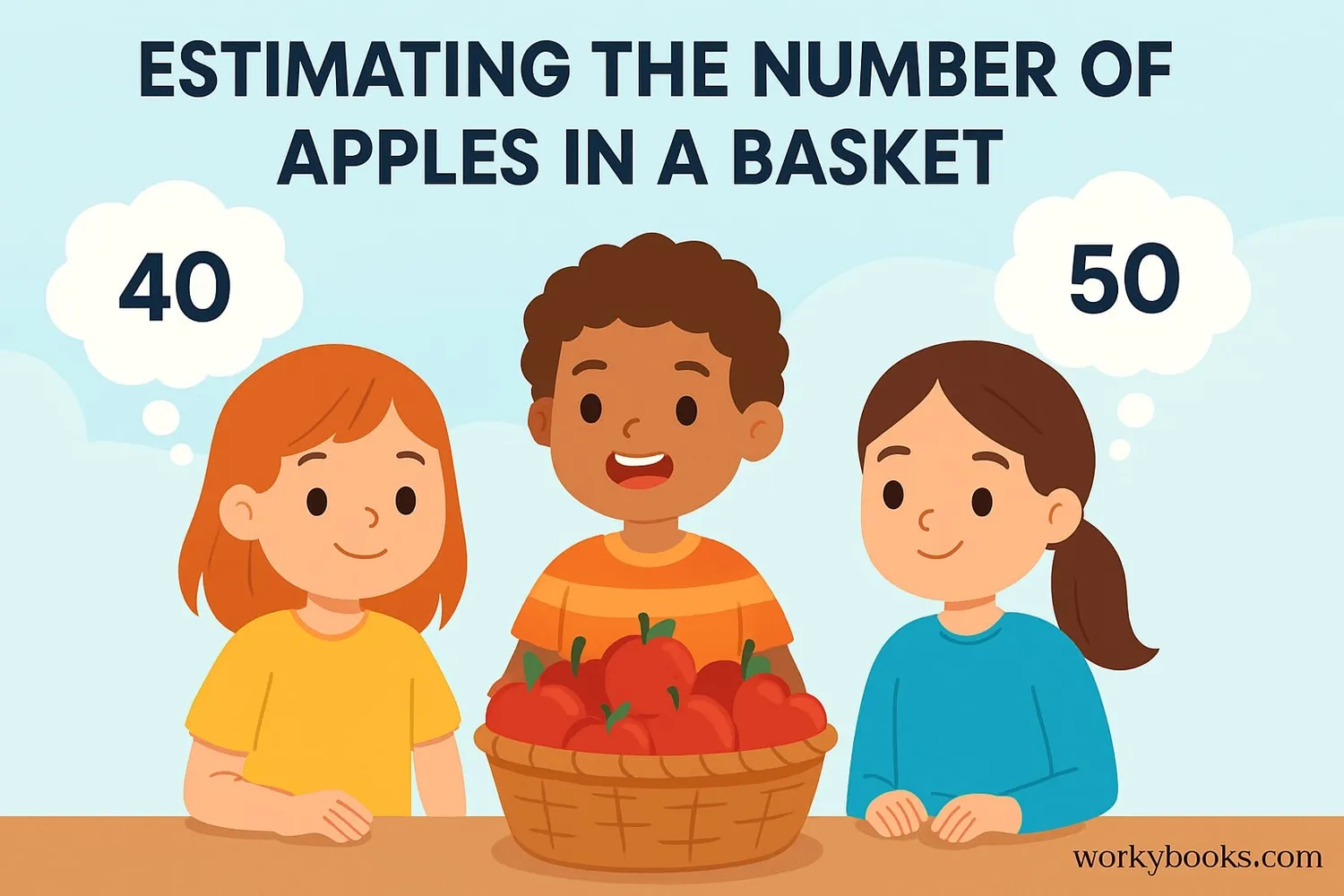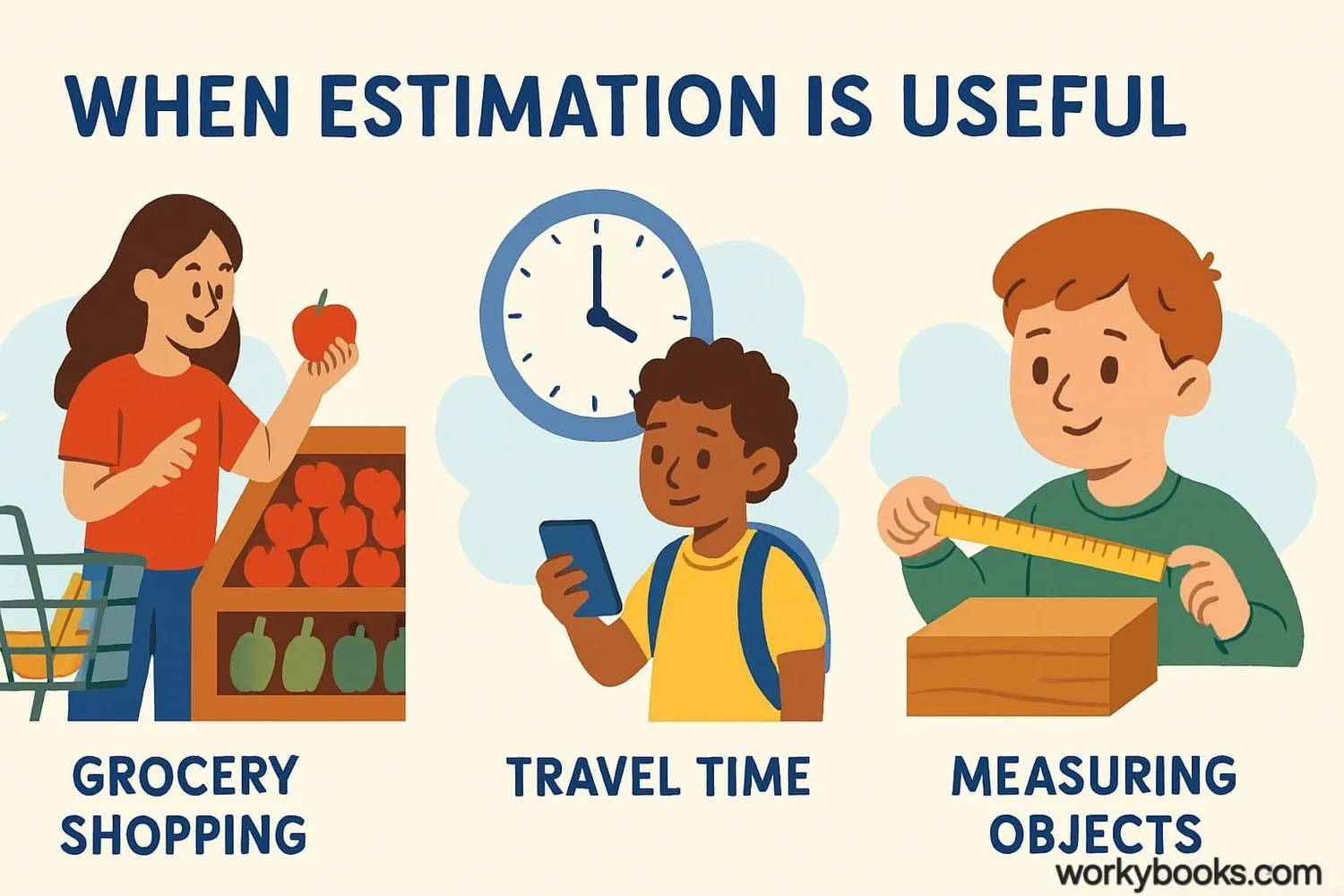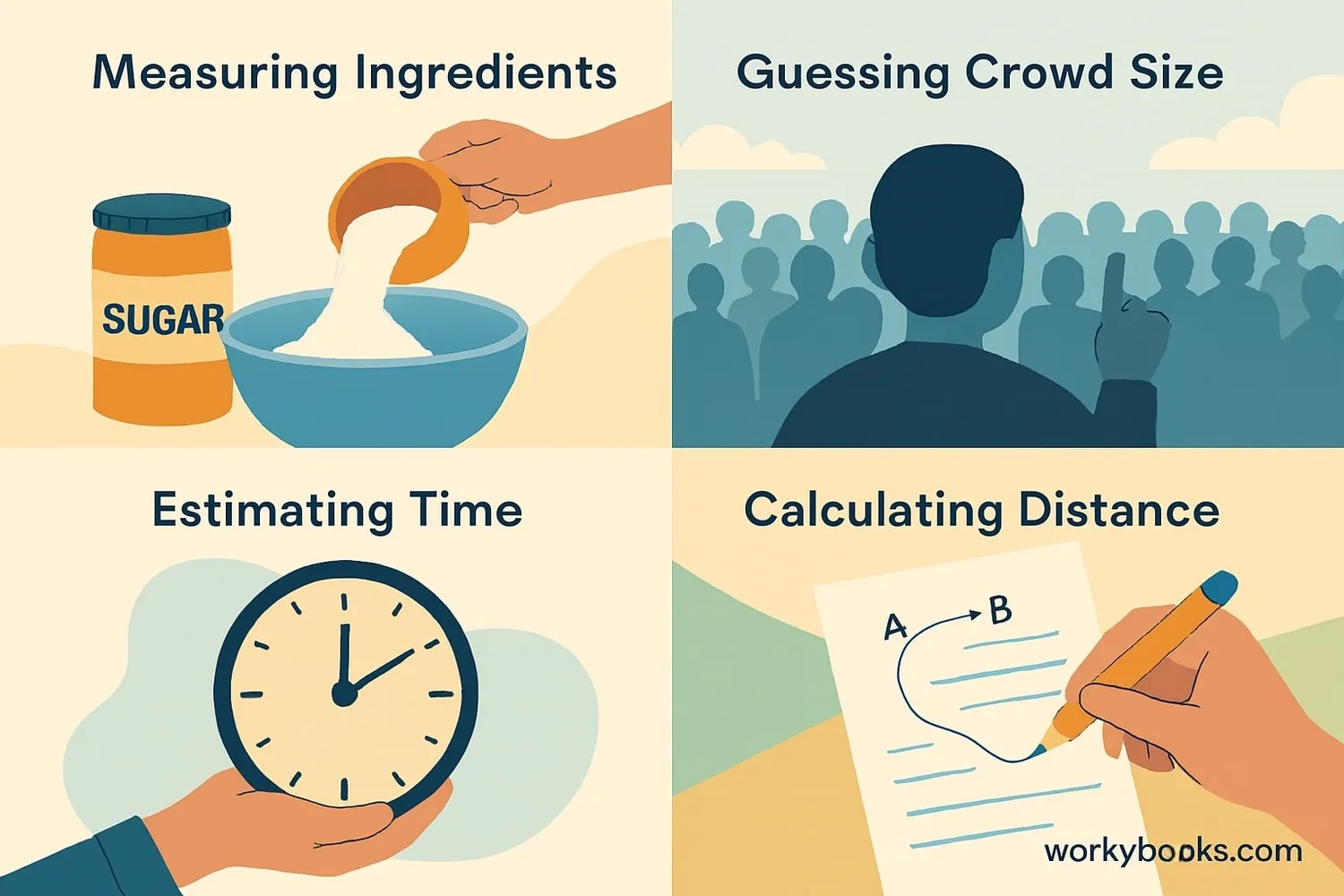Estimation - Definition, Examples, Quiz, FAQ, Trivia
Master the art of approximation with easy explanations, real-world examples, and fun practice activities
What is Estimation?

Estimation is a math skill that helps us make good guesses about numbers, measurements, or quantities without counting or measuring exactly. It's like making a smart guess that's close to the real answer!
We use estimation when:
- We need a quick answer
- Exact numbers aren't important
- We want to check if an answer makes sense
Estimation is everywhere in our daily lives. When you look at a jar of jellybeans and guess how many are inside, that's estimation! When you try to figure out how long it will take to finish your homework, that's estimation too.
Key Concept
Estimation is not about being perfect - it's about being close enough to be useful!
Why Do We Estimate?

Estimation might seem like guessing, but it's actually a very useful math skill! Here's why we estimate:
Saves Time
Sometimes we need answers quickly. Counting every single item takes too long when a good estimate is enough.
Checks Accuracy
Estimation helps us know if our exact answers make sense. If your exact answer is very different from your estimate, you might have made a mistake.
Real-World Decisions
We use estimation when shopping (do I have enough money?), cooking (how much flour do I need?), and traveling (how long will it take?).
Remember
The goal of estimation is to be close to the exact answer, not necessarily perfect!
Estimation Methods
There are several smart ways to make good estimates. Let's learn three helpful methods:
Rounding
Change numbers to the nearest ten, hundred, or thousand to make them easier to work with.
Example: 47 + 32 ≈ 50 + 30 = 80
Compatible Numbers
Find numbers that are easy to compute mentally.
Example: 197 ÷ 5 ≈ 200 ÷ 5 = 40
Front-End Estimation
Use the front digits to make a quick estimate.
Example: 437 + 225 ≈ 400 + 200 = 600
Real-Life Estimation Examples

Estimation isn't just for math class - we use it every day! Here are some real-world examples:
Measurement Estimation
Guessing lengths, weights, or volumes without exact tools.
Example: "This book is about 30 cm long."
Quantity Estimation
Guessing how many items are in a group without counting each one.
Example: "There are about 100 jellybeans in that jar."
Number Line Estimation
Finding approximate positions on a number line.
Example: "3/4 is about here on this number line from 0 to 1."
Time Estimation
Predicting how long activities will take.
Example: "It will take about 15 minutes to walk to school."
Pro Tip
The more you practice estimation, the better your guesses will become!
Estimation Practice Quiz
Test your estimation skills with this 5-question quiz. Choose the best estimate for each question.
Frequently Asked Questions
Here are answers to common questions about estimation:
Math Trivia
Discover interesting facts about estimation and math:
Ancient Estimation
The ancient Egyptians were masters of estimation. They used estimation techniques to build the pyramids with remarkable precision over 4,500 years ago!
Brain Power
Your brain has a special "approximate number system" that helps you estimate quantities without counting. Even babies have this ability!
Animal Estimators
Many animals use estimation too! Monkeys can estimate which tree has more fruit, and birds can estimate which feeder has more seeds.
Estimation Record
The world record for correctly estimating jellybeans in a jar is 8,514 out of 8,515! That's 99.99% accuracy!





